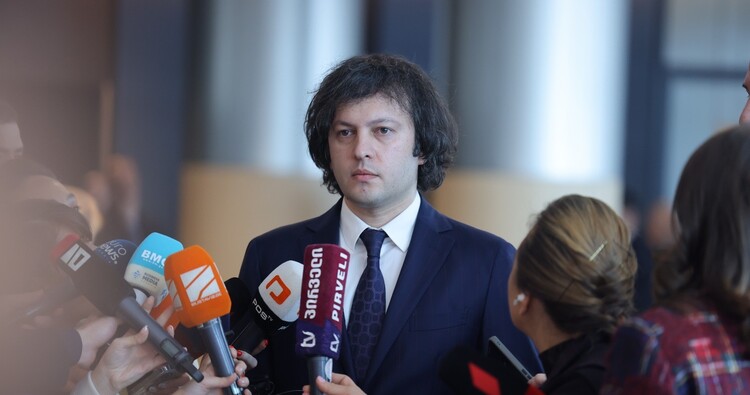Proposed vetting process contradicts Georgian Constitution, constitutional principles in general - PM

He also slammed the domestic opposition’s “groundless” campaign to discredit the judicial authorities and highlighted the importance of the independent judiciary, like all branches of the Government, accountable solely to the Georgian people. Photo via Government Administration
Georgian Prime Minister Irakli Kobakhidze on Thursday said the opposition United National Movement party-proposed initiative on vetting Georgian judges by the foreign embassies contradicts the Georgian Constitution, as well as constitutional and legal principles in general.
Vetting involves scrutinising the integrity of judges and may lead to their dismissal, which fundamentally contradicts Georgian constitutional principles, [as] judges in the country are appointed for life, and any attempt to alter this principle is not only unconstitutional but also undermines the independence of the judiciary”, the PM noted.
Kobakhidze told the media that vetting could be used in “extreme cases where there is specific evidence of systemic problems”, stressing the radical opposition did not have “any evidence” to prove “not only systemic problems but problems in the court generally”.
He also slammed the domestic opposition’s “groundless” campaign to discredit the judicial authorities and highlighted the importance of the independent judiciary, like all branches of the Government, accountable solely to the Georgian people.
In his comments over the amendments to the organic law and to the Constitution regarding prosecutors, Kobakhidze said the ruling team had considered “everything necessary” in the draft laws and both bills would be adopted, stressing the domestic opposition could not present “any rational proposals” on the bill.
The PM called the draft bill on prosecutors, proposed by the radical opposition, “absurd and irrational”, noting the ruling team had already presented amendments to the Organic Law on Common Courts and the Constitution, which envisaged “everything required” to fulfil the European Union conditions, outlined by the European Commission in November 2023 for initiating accession talks with the country.
Kobakhidze also said the Parliament would overcome the veto of Georgian President Salome Zourabichvili on the amendment to the regulations on elections of the Chair and members of the Central Election Commission, to surmount the existing problems in the CEC.
Approved by the Parliament, the changes stipulated the transfer of the power to elect the Chair and members of the Central Election Commission to the President if the legislative body fails to elect them in two attempts.
 Tweet
Tweet  Share
Share